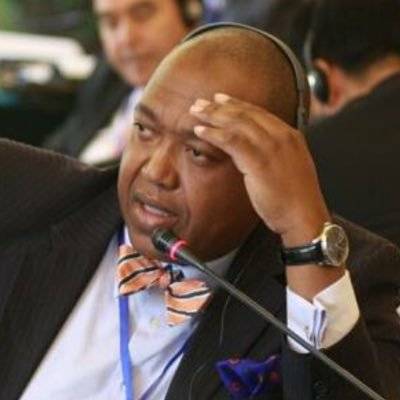I have just been to Soweto in South Africa, where I was surprised by how well-versed people are about what happened to journalist Jamal Khashoggi inside the Saudi Arabian Consulate in Istanbul. Their awareness convinces me that it will take a long time for Saudi Arabia to recover from this shameful episode.
In fact, in places like Soweto, Saudi Arabia is not known for very positive things. Most people there associate it with negative events such as public beheadings, lashings and the strict application of Sharia law.
Khashoggi’s murder has taken discussions about the Kingdom to different levels, including some rather sick jokes: “Enter in peace, leave in pieces,” is just one post-Khashoggi attempt at humour.
Why, I wonder, don’t ordinary Saudis do what some white South Africans did during the apartheid era? They stood with black South Africans against the minority regime, thus ensuring that not every white person in the country was hated as a racist. Many paid with their lives, livelihoods and privileges for their principled position. Their actions, in retrospect, ensured their future participation and inclusion in the country’s socio-political and economic process of change. It is time for “not in our name” to be heard from ordinary Saudis.
READ: Senior Saudi prince says CIA cannot be trusted on Khashoggi conclusion
The coverage of Khashoggi’s killing persists as, layer after layer, more details are revealed. Saudi PR has been on the back foot in trying to spin the Kingdom and Crown Prince Mohammad Bin Salman out of the quagmire.
A CIA report on the incident implicates Bin Salman as the mastermind behind the murder. According to the Washington Post, “The CIA has concluded that [he] ordered the assassination of journalist Jamal Khashoggi in Istanbul.” The killing has depleted whatever good PR the country had developed since Bin Salman became the de facto ruler in 2016 and embraced a number of reforms, including the Vision 2030 project which aims to transform the Kingdom’s economy and socio-political institutions.
Soon after the launch of the project, plans were announced to float state-owned oil giant ARAMCO, the biggest energy company in the world. This was followed by making it legal for women to drive on Saudi Arabia’s roads and the opening of cinemas across the country.
Khashoggi’s murder has also had a huge impact on Saudi’s international standing. Although there has been widespread condemnation from Saudi dissidents living in exile, we have heard nothing significant from within Saudi Arabia itself. This is understandable to some degree given what happened to Khashoggi and the existence of strict laws against freedom of expression and the right to protest in the Kingdom. Nevertheless, we could have expected some protests or expressions of anger. Apart from a few media reports which have conveniently apportioned blame on the 15 Saudi officials who travelled to Istanbul on the day of Khashoggi’s murder, there has been nothing suggesting, even remotely, that Bin Salman might have had something to do with it, despite the evidence which places the blame squarely on him.
READ: Trump rebuffs CIA conclusion linking MBS to Khashoggi killing as ‘feelings’
The reactions of ordinary Saudis at this juncture could be crucial in influencing the future and image as their country moves forward; a “not in our name” movement will go some way to do that. The obsession with protecting one man at the expense of the entire nation could have dire implications. Without justice being seen by Khashoggi’s family and friends to be done there will always be a dark cloud hanging over Saudi Arabia and its people.
The government in Riyadh must also realise that allowing critics of its policies to have a voice will serve its own interests in projecting itself as a state determined to be accepted in the international community for what it is, rather than simply an arms industry and petro-chemical milch cow. Openness and honesty are hallmarks of free societies. If the Saudis are to demonstrate that they have learned something from this dreadful episode, then criticism from domestic dissidents as well as those in exile is essential and doesn’t mean that regime change is on the cards. Strong governments need strong opposition if their policies are to be tested robustly and accepted. This is something that governments across the Middle East need to understand, not just the one in Riyadh.
The views expressed in this article belong to the author and do not necessarily reflect the editorial policy of Middle East Monitor.

![A demonstrator dressed as Crown Prince Mohammed Bin Salman protests outside the Saudi Embassy in Washington, DC [Twitter]](https://i0.wp.com/www.middleeastmonitor.com/wp-content/uploads/2018/10/ddd.jpg?fit=920%2C613&ssl=1)








